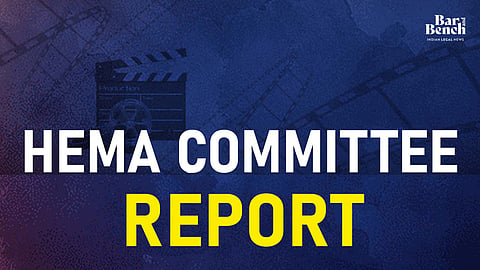
- News
- Columns
- Interviews
- Law Firms
- Apprentice Lawyer
- Legal Jobs
- हिंदी
- ಕನ್ನಡ

On October 3, a special bench of the Kerala High Court will hear petitions filed after the release of the Justice K Hema Committee report highlighting the rampant sexual harassment faced by women actors in Mollywood over the years.